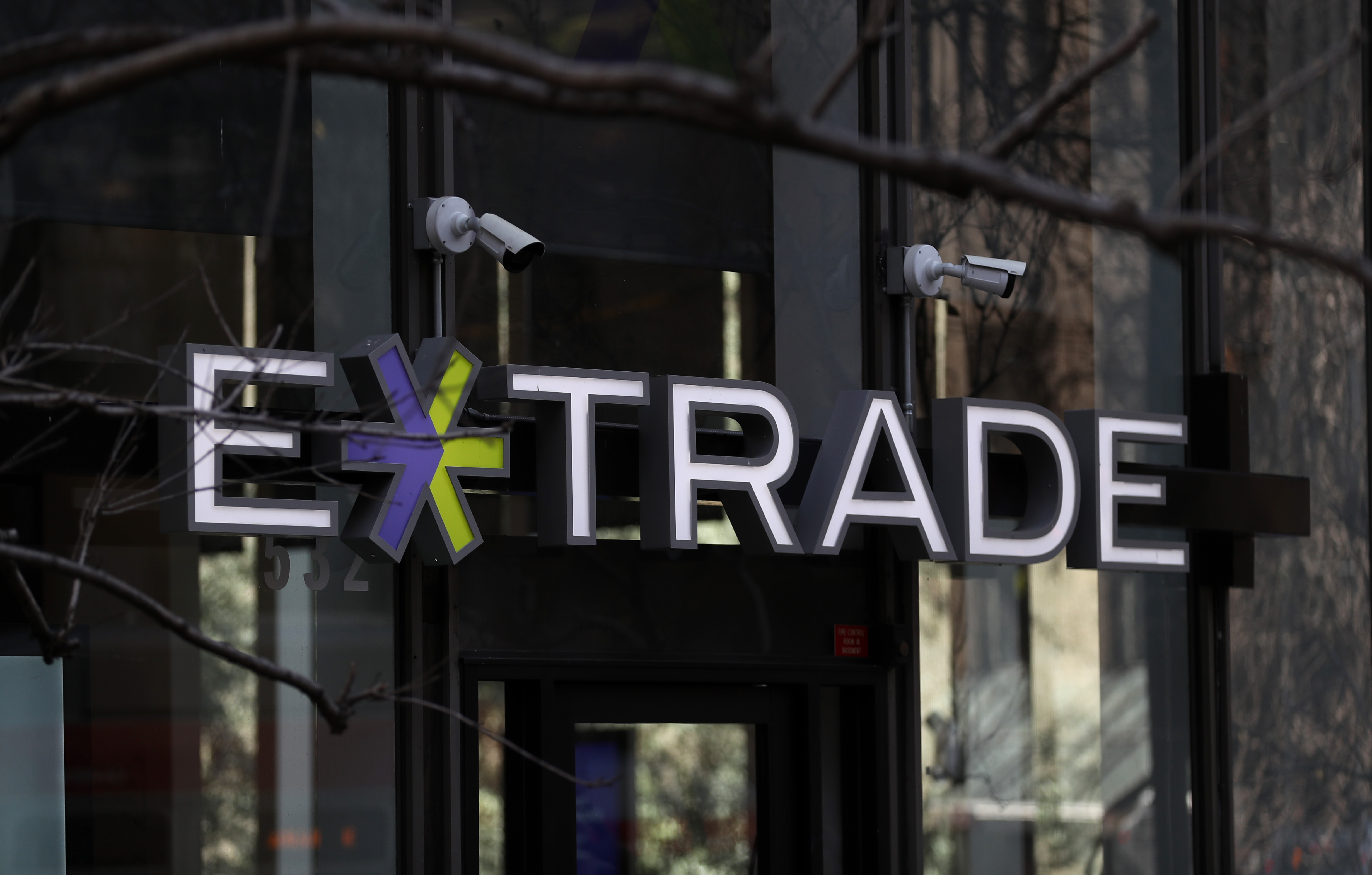Morgan Stanley agrees $13bn deal to acquire ETrade
The huge deal is an attempt by the Wall Street lender to diversify and access high numbers of low-risk digital retail investors


A free daily email with the biggest news stories of the day – and the best features from TheWeek.com
You are now subscribed
Your newsletter sign-up was successful
Morgan Stanley, the renowned Wall Street investment bank, has turned to digital discount brokerage platform ETrade in a $13 billion all-stock acquisition designed to capture a share of the growing online stock-trading market.
Talks have been ongoing since December for what will be the biggest takeover by any global bank since the 2008 financial crisis, and Morgan Stanley’s second biggest of all time.
ETrade offers the storied Wall Street giant access to 5.2 million new customers, younger and with shallower pockets than their traditional clients, but nevertheless representing what the firm called a “pipeline of emerging wealth”, with a total $360 billion of assets on the platform.
The Week
Escape your echo chamber. Get the facts behind the news, plus analysis from multiple perspectives.

Sign up for The Week's Free Newsletters
From our morning news briefing to a weekly Good News Newsletter, get the best of The Week delivered directly to your inbox.
From our morning news briefing to a weekly Good News Newsletter, get the best of The Week delivered directly to your inbox.
In contrast, Morgan Stanley’s current wealth management business looks after the funds of 3 million wealthy investors, whose collective assets reach a staggering $2.7 trillion.
As such, Morgan Stanley chief executive James Gorman was quick to point out the merger is “not about being bigger, it’s about strategy”.
Indeed, the firm believes that earnings per share would take a modest hit in 2021, perhaps not improving earnings until 2023. “The break-even period is long, but that’s not really the way we looked on it,” said chief financial officer Jon Pruzan.
The deal “highlights the increasing convergence of Wall Street and Main Street,” says The New York Times. “Elite bastions of corporate finance are seeking to cater to customers with smaller pocketbooks, and online brokerage firms that once hoped to overthrow traditional trading houses are instead suffering from a price war that has slashed their profits.”
A free daily email with the biggest news stories of the day – and the best features from TheWeek.com
The Financial Times says there is a need for “consolidation in financial services, so that institutions can achieve economies of scale and diversify.”
Gorman said the move would not result in any changes for either companies’ clients. ETrade will retain its CEO, Michael Pizzi, and will “keep its brand, its handful of retail storefronts and its buzzy and well-funded ad campaigns,” reports The Wall Street Journal.
“Since we created the digital brokerage category nearly 40 years ago, ETrade has consistently disrupted the status quo and delivered cutting-edge tools and services to investors, traders, and stock plan administrators,” Pizzi said in a news release.
“By joining Morgan Stanley, we will be able to take our combined offering to the next level and deliver an even more comprehensive suite of wealth management capabilities.”
–––––––––––––––––––––––––––––––For a round-up of the most important business stories and tips for the week’s best shares - try The Week magazine. Get your first six issues free–––––––––––––––––––––––––––––––
The acquisition follows on the heels of November’s $26 billion merger of Charles Schwab and TD Ameritrade, two discount brokerage firms who played a major part in the industry’s scaling, using technology to open up low-volume stock trading to the general public.
Morgan Stanley’s rival Goldman Sachs is also pursuing mass-market customers online, as elite investment lenders seek to modernise and diversify, increasingly looking for lower risk, consistent income as opposed to high-risk, high-reward gambits.
Goldman, however, was apparently not competing for ETrade, which Gorman insisted “was our preferred partner always,” and in whom he had had a personal interest in acquiring since 2002 while he was at Merrill Lynch.
“Thursday’s merger will probably come under intense scrutiny from Washington regulators and congressional Democrats already skeptical of large banks such as Morgan Stanley growing any bigger,” The Washington Post warns.
Analysts contended that the deal could spill into 2021 as the Federal Reserve looks at the systemic risk of large lenders consolidating further.
William Gritten is a London-born, New York-based strategist and writer focusing on politics and international affairs.
-
 Local elections 2026: where are they and who is expected to win?
Local elections 2026: where are they and who is expected to win?The Explainer Labour is braced for heavy losses and U-turn on postponing some council elections hasn’t helped the party’s prospects
-
 6 of the world’s most accessible destinations
6 of the world’s most accessible destinationsThe Week Recommends Experience all of Berlin, Singapore and Sydney
-
 How the FCC’s ‘equal time’ rule works
How the FCC’s ‘equal time’ rule worksIn the Spotlight The law is at the heart of the Colbert-CBS conflict
-
 What a rising gold price says about the global economy
What a rising gold price says about the global economyThe Explainer Institutions, central banks and speculators drive record surge amid ‘loss of trust’ in bond markets and US dollar
-
 City giants begin move to Frankfurt as Brexit doubts grow
City giants begin move to Frankfurt as Brexit doubts growSpeed Read German finance hub looks to assume the mantle of Europe’s business capital
